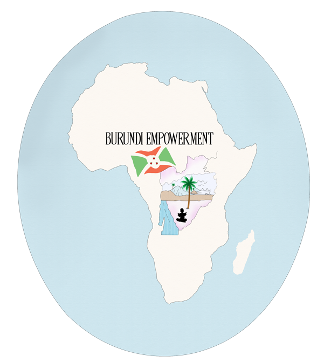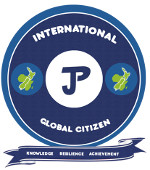
Fundraising for Burundi Empowerment (May-June 2019).
You can join, assist and share this initiative on your network. Find more info at http://burundiempowerment.org
Since 2013, we have assisted more than 1000 orphans to enroll and complete elementary education in Burundi /East Africa. Burundi Empowerment is mainly sponsored by generous Kiwis and volunteers in Burundi. We urge you to join our 2019 fundraising initiative as we aim to assist more than 250 children who desperately need school residences. This occasion we will include disabled children in our target . We will support them to enroll, learn and achieve full potential.
What is Burundi Empowerment?
This project aims to empower the most vulnerable kids to reach their potential. Through the sponsorship initiatives, we provide school resources to orphan in order to build up their resilience and strengthen their ability to overcome their hardships. In addition, Burundi Empowerment advocates for children's rights. The project provides basic education resources to the most vulnerable kids particularly unaccompanied children, orphans and widows in order help them complete elementary education in Burundi. For details about what we do or how you can get involved , please browse the BEP website on www.burundiempowerment.org
Burundi is often overlooked or neglected. Under the UN Convention on the Rights of the Child and Vienna Declaration and Program of Action, children have rights to education, special protection and care including the basic universal state-paid education, health care and criminal laws appropriate for the age and development of the child, equal protection of the child's civil rights, and freedom from discrimination on the basis of the child's race, gender, sexual orientation, gender identity, national origin, religion, disability, color, ethnicity, or other characteristics.
Why is still important to support Burundi orphans?
Burundi is a country that has gone through many ethnic conflicts that killed thousands of innocent people, causing influx of orphans and unaccompanied minors. The Burundian Civil War, which mainly 1993 to 2015 killed an estimated 300,000 innocent people. In addition, political unrest (2015–present) in Burundi has negatively affected many vulnerable kids ‘wellbeing. i.e. children struggle to pay school fees, get uniforms and access school resources.
According to The United Nations Children's Fund (UNICEF) and The United Nations High Commissioner for Refugees UNHCR, people of Burundi are facing a humanitarian crisis marked by economic decline, extreme food insecurity and a disease outbreak. While the worst of the violence has eased, the situation remains fragile, with an unresolved political situation and continued displacement within and outside the country.
Burundian children across the country remain vulnerable to humanitarian crisis due to high levels of poverty. This precarious situation is compounded by natural disasters (floods, landslides and rainfall deficits), population movements, epidemics (cholera and peaks of malaria) and the risk that Ebola will spread into the country.
UNICEF indicates that 976,200 children are affected by the humanitarian crisis and the economic downturn, and will require humanitarian assistance in 2020. This includes some 60,000 children2 at risk of severe acute malnutrition (SAM). With the ongoing outbreak of Ebola in the Democratic Republic of the Congo, Burundi is a priority 1 country for Ebola preparedness. While important progress has been made in 2019, critical gaps remain in ensuring Ebola prevention and adequate capacities to respond.
Due to extreme poverty which has been caused by ethnic wars and political unrest in Burundi, thousands of kids are unable to afford basic needs, school resources and medical treatments. As it is reported by UNICEF, Musave village which is located to Rumonge province is among poorest schools that require assistance.
In addition, 110,000 people 3 are displaced inside the country, primarily due to natural disasters. The ongoing voluntary repatriation process within the tripartite agreement facilitated the return of 15,000 Burundians (57 per cent children) in 2019.
Burundi will be holding general election this year 2020. There are already tensions between rival political parties. Unfortunately, children become victims or political unrest. Remember the African idioms “when elephants fight, it is the grass that suffers most, the weak get hurt in conflicts between the powerful”.
The presidential elections scheduled for 2020 are expected to influence these dynamics. Thus, Burundi children will continue to face poverty-related hardship. Burundi Empowerment will appreciate your donation to ensure the orphans get school resources.
Burundi Empowerment assisted Musave village youth with footballs resources as a means to boost academic achievement. We were pleased to donated soccer balls as we believed that participation in sport can increase academic achievement. This theory is based on various factors:
- Increased energy derived from fitness
- Students more disciplined and competitive
- Less disruptive behavior
- The appeal of sports-related employment can encourage young people with little academic interest to participate and further their education.
Why do Burundi orphans need your supports?
Orphans in Burundi are still exposed many hardships, which are related to poverty, family hardships, socio-economic needs and poor health. The resultant impact on Burundi society is not just economic but also results in a negative effect on children's achievement, participation in the mainstream and it prevent them from achieving their full human potential. When children miss out on an education, they’re at greater risk of being exploited. They are more likely to be trafficked, forced to work or get married young, and are less likely to earn enough to make a living.
Due to extreme poverty which has been caused by ethnic wars and political unrest in Burundi, thousands of kids are unable to afford basic needs, school resources and medical treatments. It is documented that orphans who are not engaging in school undergo so many hardships. i.e. Orphans in Burundi who do not learn to read, write and communicate and they are more likely to leave school early, have poorer emotional and physical health.
Burundi Empowerment strengthened orphans’ resilience and it helped them to stay in the school, develop essential literacy skills they require to complete elementary school. Since then project has been created, more than 400 children have completed primary school, and they are able to write and read.
Humanitarian Situation Report, Highlights- Burundi/ Africa?
- As 2019 ,it was reported by UNICEF and partners that legal assistance was affected to 44 children under 18 detained on charges of contempt of the head of state .
- In a context of rising food prices and vulnerability of families, UNICEF and partners began conducting mass door-to-door screening of malnutrition amongst children in six vulnerable provinces.
- Over 2,000 children diagnosed with severe acute malnutrition (SAM) were referred to health centers for life-saving treatment over the past month.
Key figures
275,682 Refugees seeking asylum in neighboring countries (UNHCR, 26 July 2018)
61,268 Estimated internally displaced people in 7 provinces (IOM, 28 July 2018)
59% Of IDPs who are children (IOM, 28 July 2018)
4,551,292 Reported malaria cases (MOH, 21 July 2018).
Situation Overview and Humanitarian Needs by UNICEF Burundi
The economic situation in Burundi remains volatile and continues to increase humanitarian needs. The devaluation of the Burundian Franc on the informal market has put additional pressure on the existing fragile economic situation of the country, in particular the purchasing power of the most vulnerable families.
The total number of refugees in neighboring countries (Tanzania, DRC, Rwanda, Uganda and Zambia) has increased to 275,682 while the number of internally displaced people registered in seven provinces is 61,268 (IOM, July 2016), of which 59 per cent are children. Among the displaced, 68 per cent reported leaving their homes for social and political reasons. UNICEF and partners are closely following up on all child protection issues, especially on separated and unaccompanied children and continue to monitor the overall situation to ensure children have access to essential social services.
In collaboration with Terre des Hommes, seven unaccompanied children were reunited with their families. Terre des Hommes is also conducting follow up visits and will facilitate their return to schools or integration into vocational training programs.
UNICEF, OHCHR, FENADEB (association of national child rights organizations) and partners continued to closely monitor and advocate on behalf of children accused of scribbling in their textbooks the photo of the President of the Republic, and charged with contempt from the head of state, leading to the release of all children.
Initially, more than 700 hundred children were expelled from school, and some accused and detained facing fines and up to 5 years in prison. To date, at least forty-four children (32 boys, 12 girls) had been detained and all children have been released or temporarily released; however at least 10 youth (above 18) remain in detention. However, despite a slower increase in cases, reported malaria cases are still more than double those of previous years at the same period, with a cumulative total in 2016 of 4,551,292 cases of malaria and 2,228 deaths (MoH, 21 July 2016) compared to 2,560,958 cases and 1,137 deaths in 2015.
On a positive note, no new cholera case has been recorded since 21 April; the cumulative total of cholera cases in 2016 remains at 22 with no deaths reported. All patients were treated in a timely manner as a result of preparedness initiatives and supply propositioning in all high-risk areas, made possible through DfID funding. More details on Burundi data, please contact UNICEF Burundi thriugh its website
